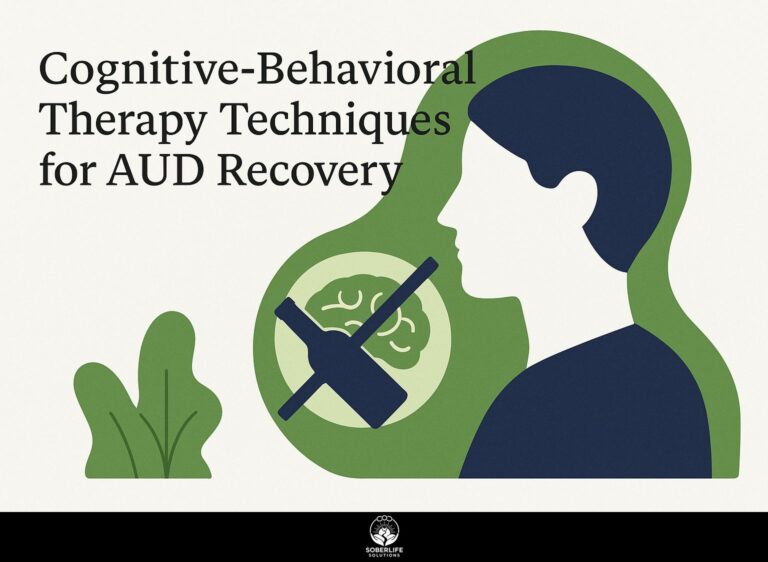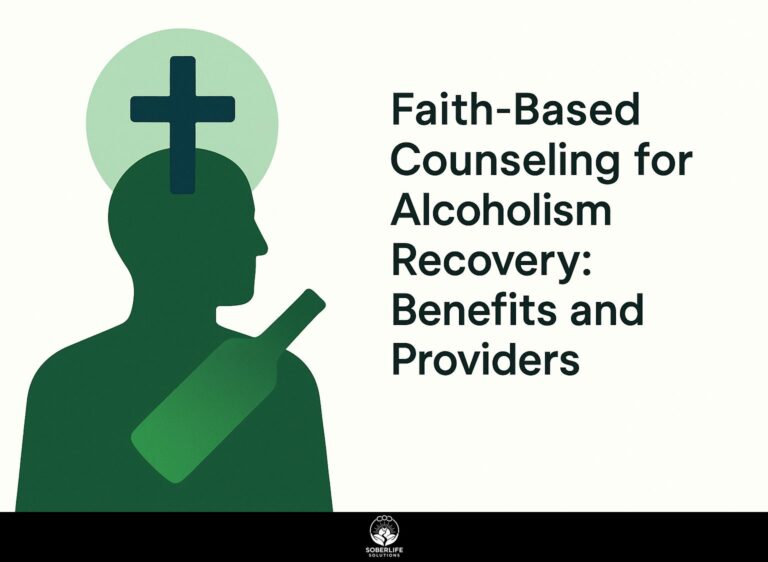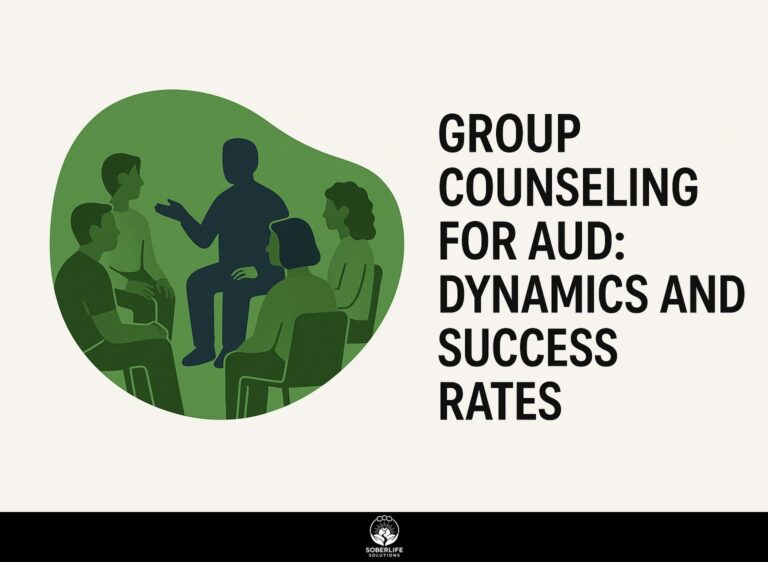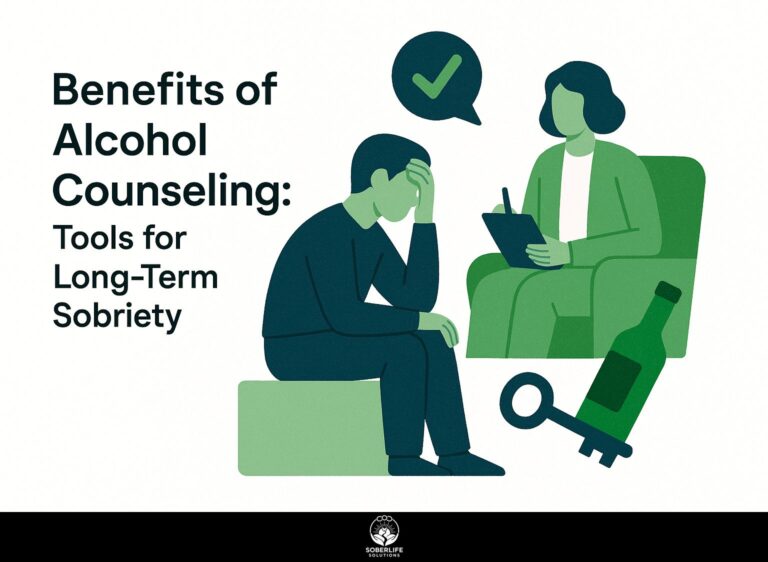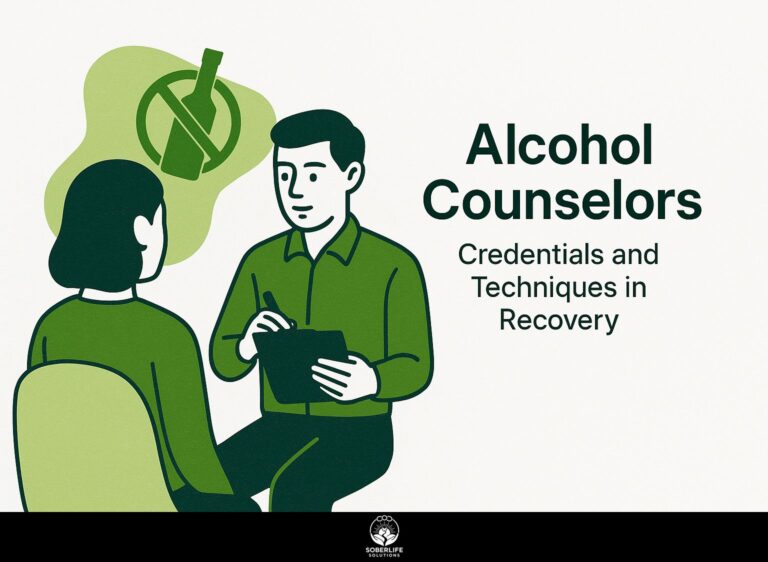How to Access Online Counseling for Alcoholism Recovery
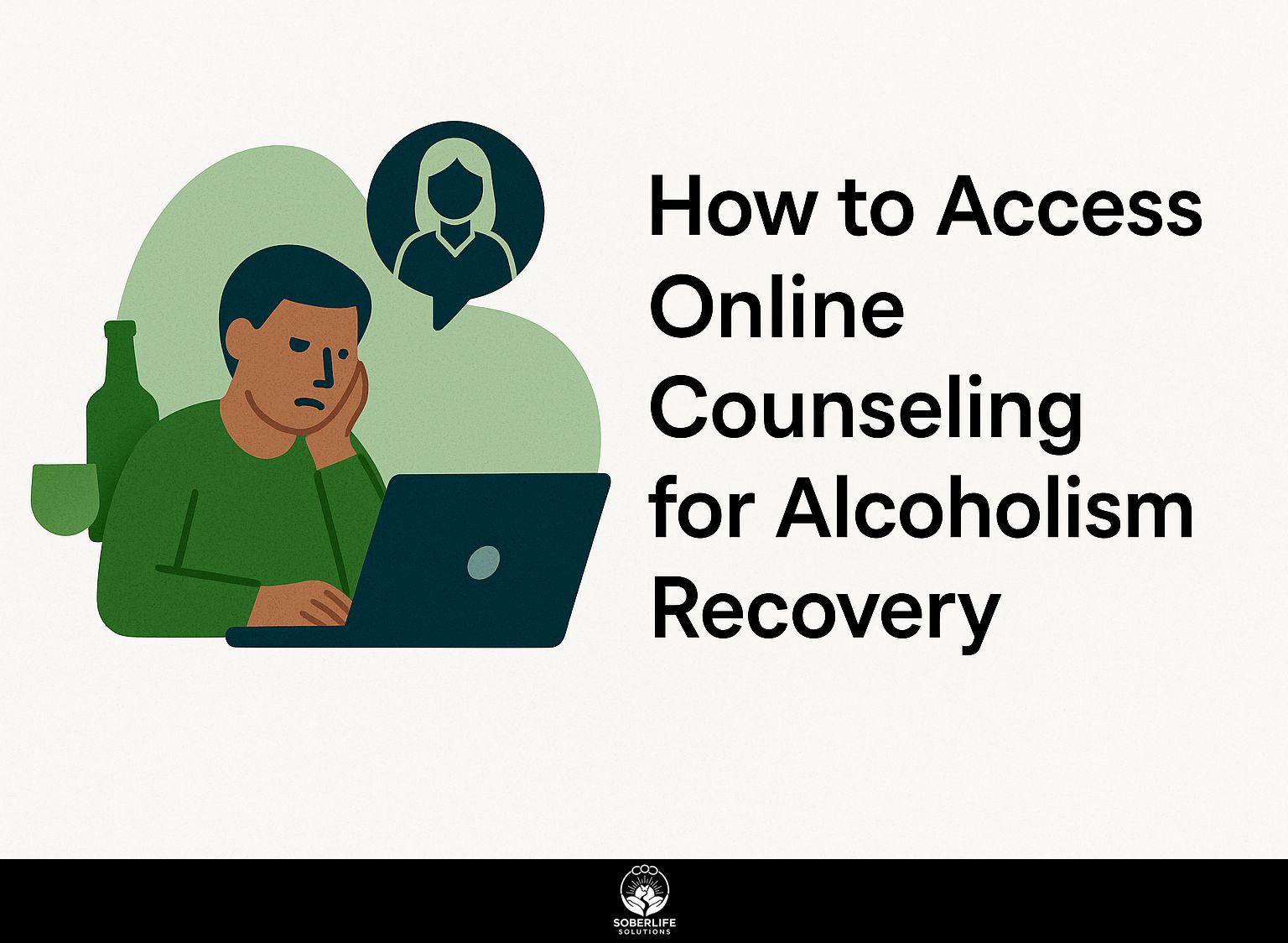
Struggling with alcoholism can feel overwhelming, but accessing online counseling can pave the way for your recovery. Start improving your mental health by calling for teletherapy from The Recovery Village or using wellness apps like Nobu. In this article, we’ll look at how to choose online counseling services, discussing the advantages and steps to find the help you need for long-term health.
Key Takeaways:
Importance of Accessibility
Accessibility is very important for effective treatment, as 70% of patients face obstacles to traditional therapy, such as travel and scheduling issues.
Online counseling directly addresses these challenges by offering flexibility and convenience. Patients can schedule appointments outside typical business hours, accommodating work and personal commitments.
For example, platforms like BetterHelp and Talkspace let clients connect with licensed therapists using video calls or chat, allowing them to get help while at home. These services often provide a range of therapists, allowing users to find someone who fits their specific needs, all while reducing the stigma associated with in-person visits. This shift to online therapy is further supported by recent insights from the American Psychological Association, which highlights the growing demand for flexible mental health care solutions.
Benefits of Online Counseling
Studies show that online counseling can be as effective as in-person therapy, with 80% of users reporting satisfaction with their treatment outcomes.
Online counseling provides many benefits that improve therapy sessions.
For instance, platforms like BetterHelp and Talkspace provide flexibility, allowing users to schedule sessions at their convenience, often outside of traditional office hours. They maintain strict privacy measures, ensuring confidentiality during sessions.
Many services also offer a range of treatment options, from text messaging to video calls, catering to different preferences.
A survey found that 70% of users appreciated the ease of access to licensed professionals from the comfort of their homes, highlighting its appeal in today’s fast-paced world. For a deeper understanding of these advantages, you might explore The Pros and Cons of Online Therapy as discussed by Verywell Mind. If interested, you can also learn about virtual recovery groups and their increasing popularity.
Understanding Alcoholism
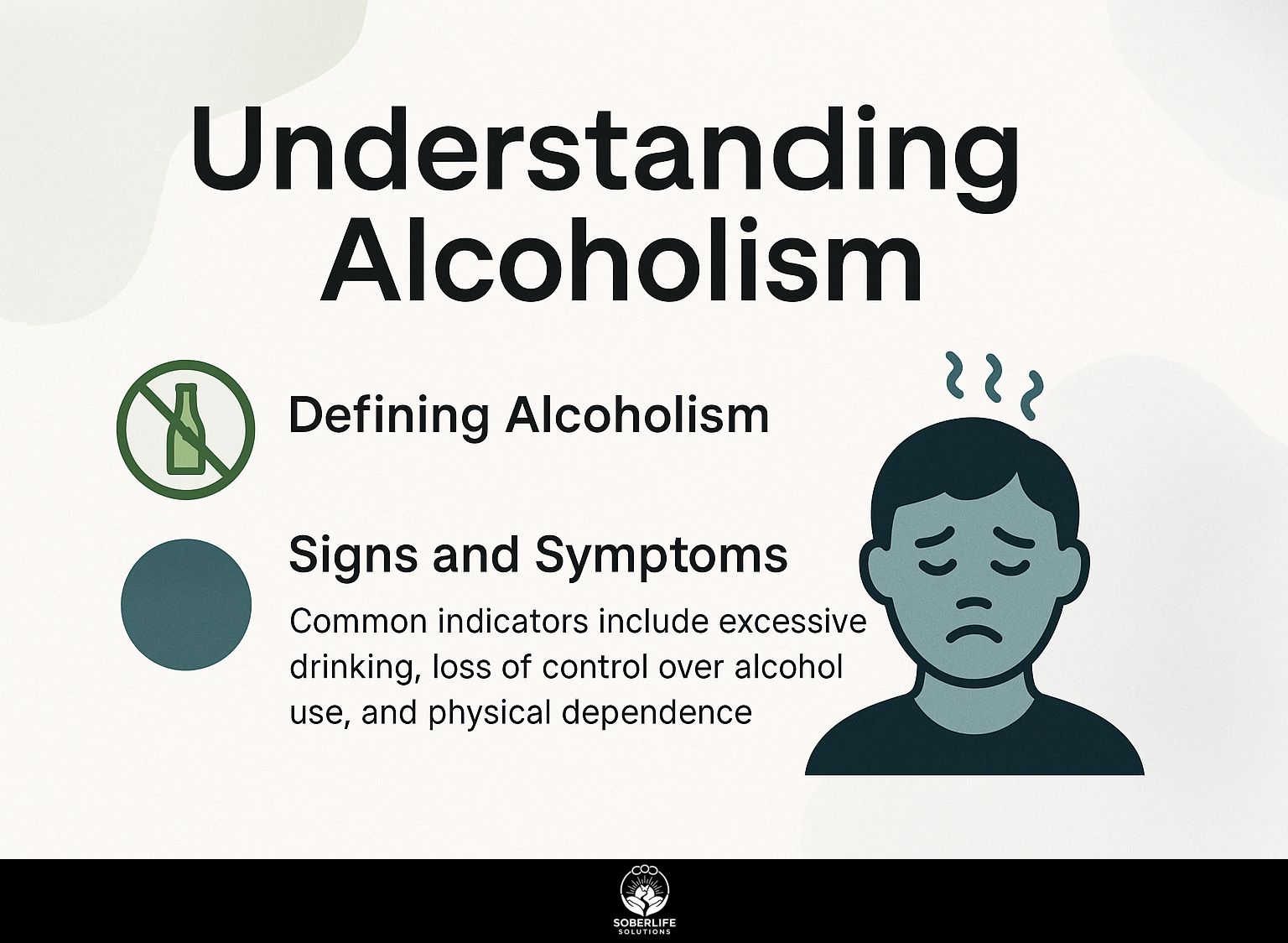
Knowing about alcoholism is essential for successful treatment; it is recognized as a long-term illness impacting many people worldwide. Integrating a balanced diet into recovery can significantly enhance the healing process, as discussed in our hidden gem on the benefits of nutrition during alcoholism recovery.
Defining Alcoholism
Alcoholism is defined as a compulsive and uncontrolled consumption of alcohol, leading to physical and mental health problems.
It is classified as a mental health disorder within the DSM-5 and is characterized by a strong craving for alcohol, loss of control over drinking, and withdrawal symptoms.
According to the National Institute on Alcohol Abuse and Alcoholism (NIAAA), diagnostic criteria include tolerance, unsuccessful attempts to cut down, and continued use despite problems.
Recovery often encompasses therapy, support groups, and lifestyle changes. Seasonal educational sessions or counseling can provide important help for those wanting to overcome addiction. RAND Corporation provides a comprehensive diagnostic criteria checklist for Alcohol Use Disorder, which can be a valuable resource for those diagnosing and treating this condition.
Signs and Symptoms
Common signs of alcoholism are needing to drink more to feel the same effects, experiencing withdrawal symptoms when not drinking, and ignoring responsibilities, which can seriously damage life quality.
Noticing these symptoms in yourself or a loved one is important for getting help early. Increased tolerance might manifest as needing more drinks to feel the same effects.
Withdrawal symptoms could include anxiety, irritability, or tremors when not drinking. Neglecting responsibilities often results in missed work or family obligations.
To support a loved one, initiate an open conversation in a non-confrontational manner, focusing on concern rather than judgment. Utilizing resources like the Substance Abuse and Mental Health Services Administration (SAMHSA) can also provide guidance on next steps.
Types of Online Counseling Services
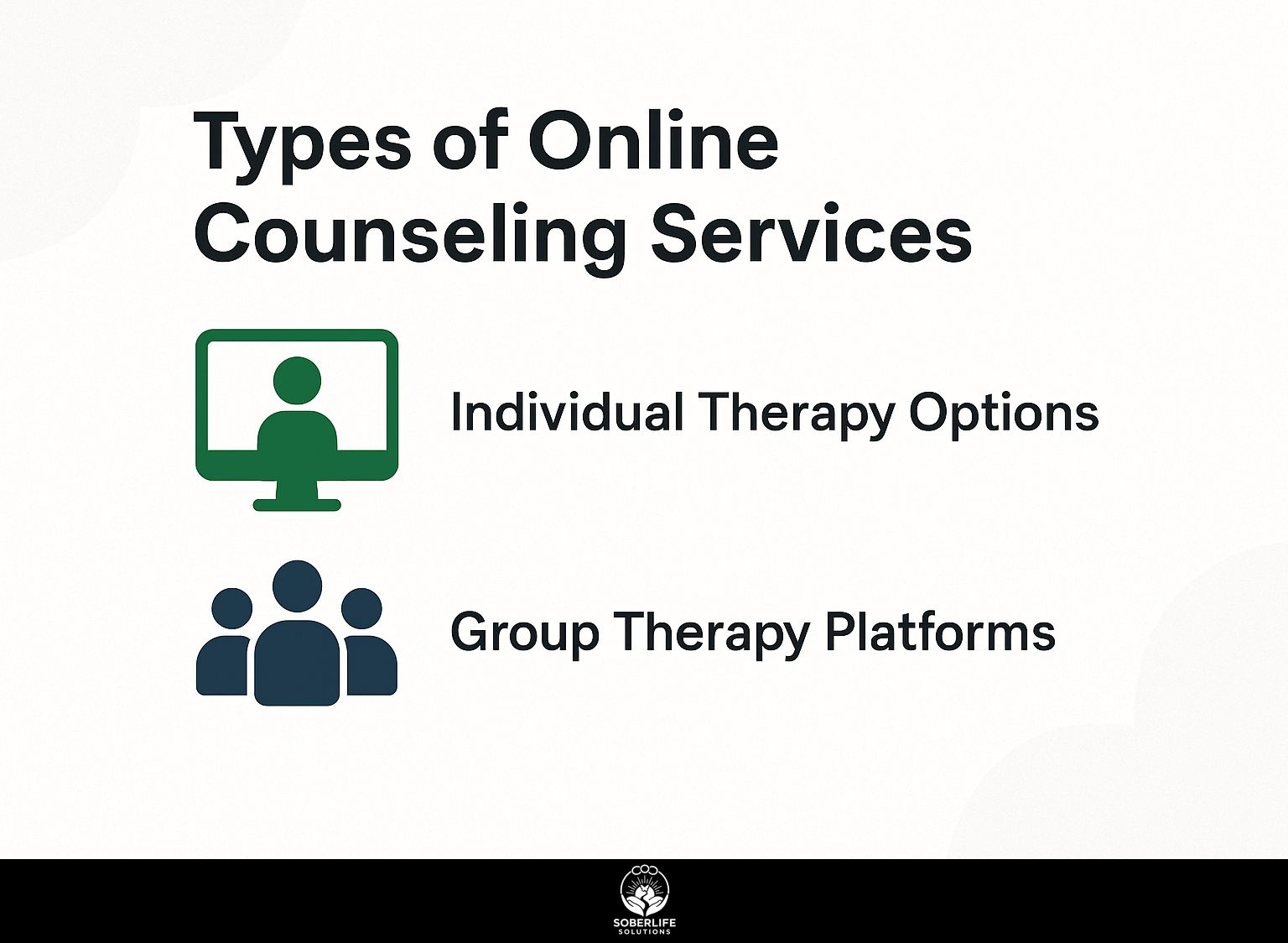
Online counseling services provide different formats designed for personal needs, making it easier to find help for recovery. Related insight: Virtual recovery groups are becoming increasingly popular, offering additional support through digital platforms.
Individual Therapy Options
Individual therapy options like BetterHelp and Talkspace offer personal counseling sessions with licensed experts.
These platforms offer sessions typically lasting between 30 and 60 minutes, allowing clients to choose what fits their schedules.
Flexibility is a significant advantage; you can connect with your therapist via video calls, phone calls, or messages, ensuring convenience.
For a secure experience, both have encrypted apps to guarantee your privacy. Regular check-ins help in tracking progress and adjusting strategies, so don’t hesitate to communicate preferences or concerns openly with your therapist.
This way of working together improves the therapy connection.
Group Therapy Platforms
Programs like SMART Recovery offer structured support by connecting individuals to discuss their experiences and develop as a group.
These platforms let people share experiences with others who have similar issues, helping build a community.
For example, Mindfulness-Based Recovery offers online sessions where members share their coping strategies, while BetterHelp provides specialized group therapy focusing on specific issues such as anxiety or depression.
Combining clear instructions with personal stories makes it easier for participants to connect and take part. Many members say they feel less alone because sharing experiences often leads to a stronger connection and empathy within the group.
Finding the Right Online Counselor
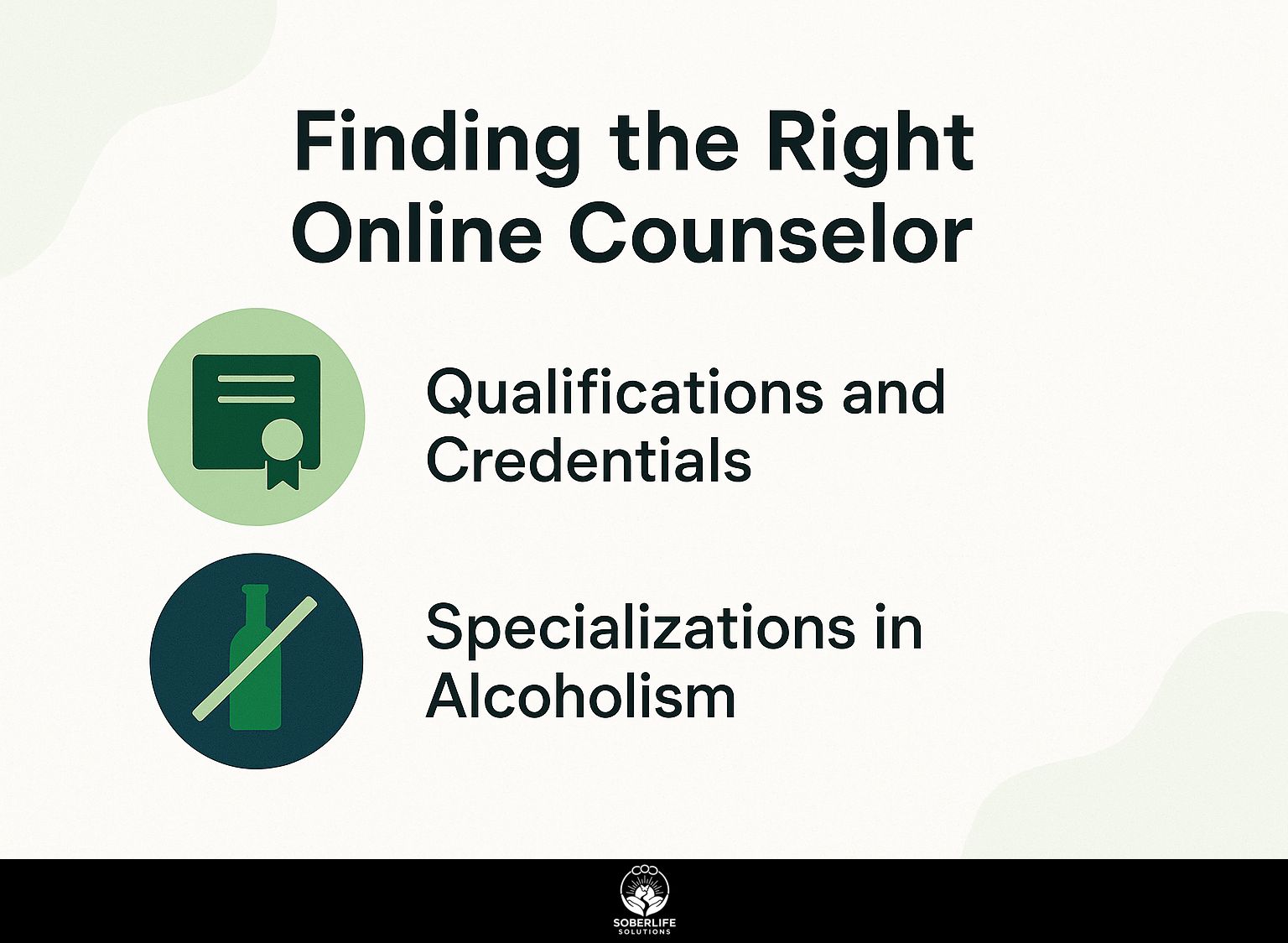
Picking the right online therapist is important for good therapy. Look at their qualifications and areas of focus to make sure they fit what you need.
As mentioned in our analysis on when to ask for professional help, understanding your personal therapy needs is crucial to making an informed choice.
Qualifications and Credentials
Look for licensed professionals such as LCSWs, LPCs, or psychologists to receive suitable care.
These licenses indicate a professional’s training and adherence to ethical standards. Check if they hold any certifications in specific fields, like the Certified Alcohol and Drug Counselor (CADC) or Advanced Alcohol and Drug Counselor (AADC), which show skill in addiction treatment.
Look for counselors with at least three years of experience working directly in addiction treatment settings. Read reviews or testimonials to assess their approach and effectiveness, ensuring you’re comfortable with their style and methods.
Specializations in Alcoholism
Many online counselors specialize in alcohol addiction, providing targeted strategies and evidence-based treatments like CBT.
These counselors often use techniques from Cognitive Behavioral Therapy (CBT) to help clients identify and change negative thinking related to drinking alcohol.
For instance, a counselor might guide a client through recognizing triggers that lead to cravings, then developing coping strategies to avoid these triggers.
Motivational interviewing can encourage self-reflection and support a client’s readiness for change.
Counselors use these methods to develop individual treatment plans that help people recover over time, leading to better habits and improved health.
How to Access Online Counseling
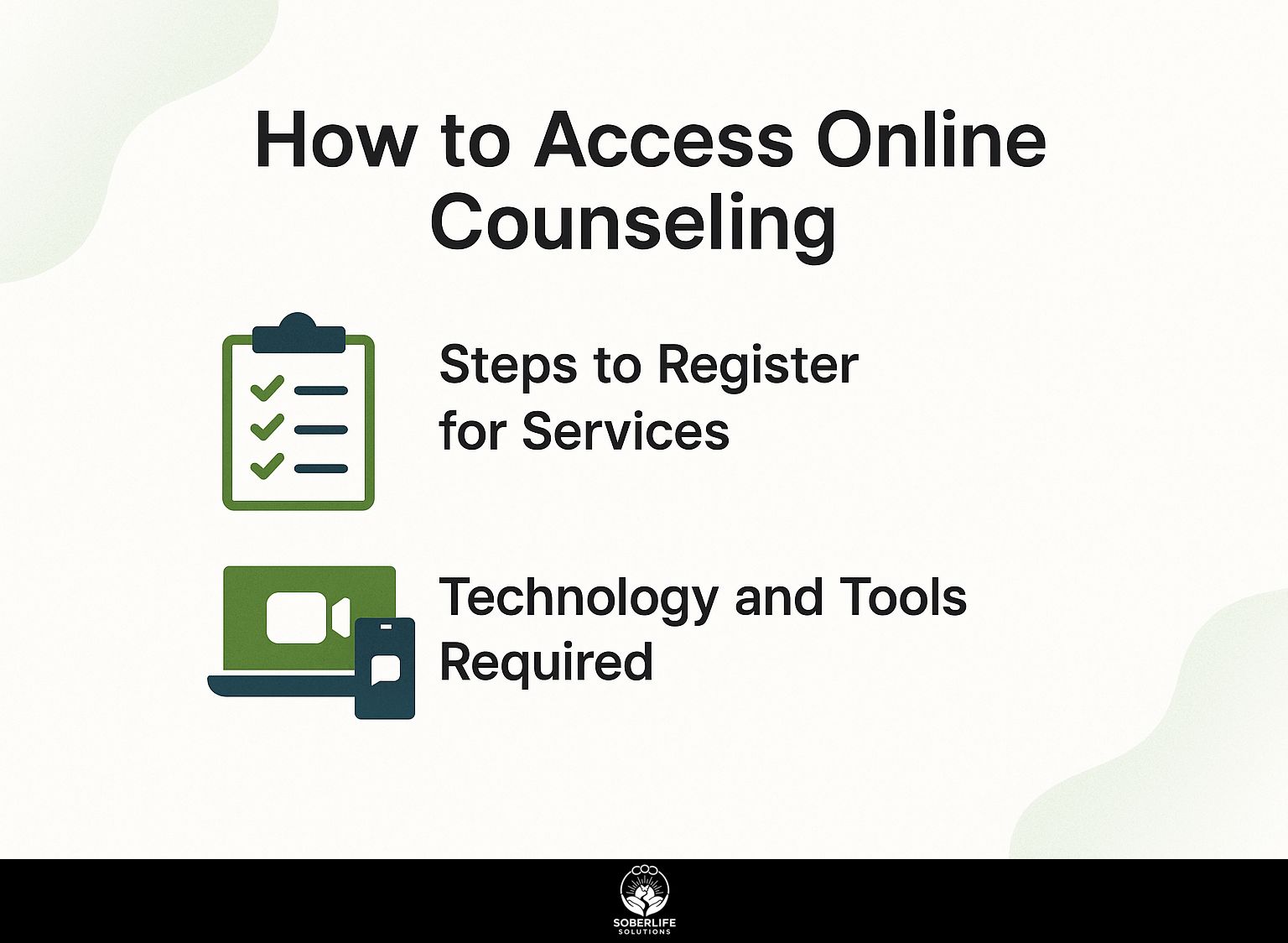
Getting online counseling is easy. You usually need to sign up on a telehealth website such as BetterHelp or Talkspace.
Steps to Register for Services
The registration process generally includes creating an account, completing a questionnaire about your needs, and selecting your therapist.
To get started, visit the counseling service’s website and click `Register.’ After creating your account, you’ll encounter a detailed questionnaire. Being truthful in your answers is important; it helps the platform find a therapist who understands your particular issues, like anxiety or relationship problems.
Once you submit the questionnaire, you’ll have a list of therapists to choose from. Look over their profiles and choose a person you connect with, thinking about things like their background and approach to therapy.
Technology and Tools Required
A secure app and a stable internet connection are essential for accessing online counseling effectively via mobile or desktop platforms.
Also, make sure your device has the newest software updates to work with the app used for counseling, like BetterHelp or Talkspace.
For optimal performance, connect through Wi-Fi if possible, as it reduces latency compared to cellular data. It’s also advisable to have a backup option, like a mobile hotspot or an alternative device, to avoid interruptions during sessions.
Consider using headphones with a microphone for clearer audio and privacy during your conversations.
Cost and Insurance Considerations
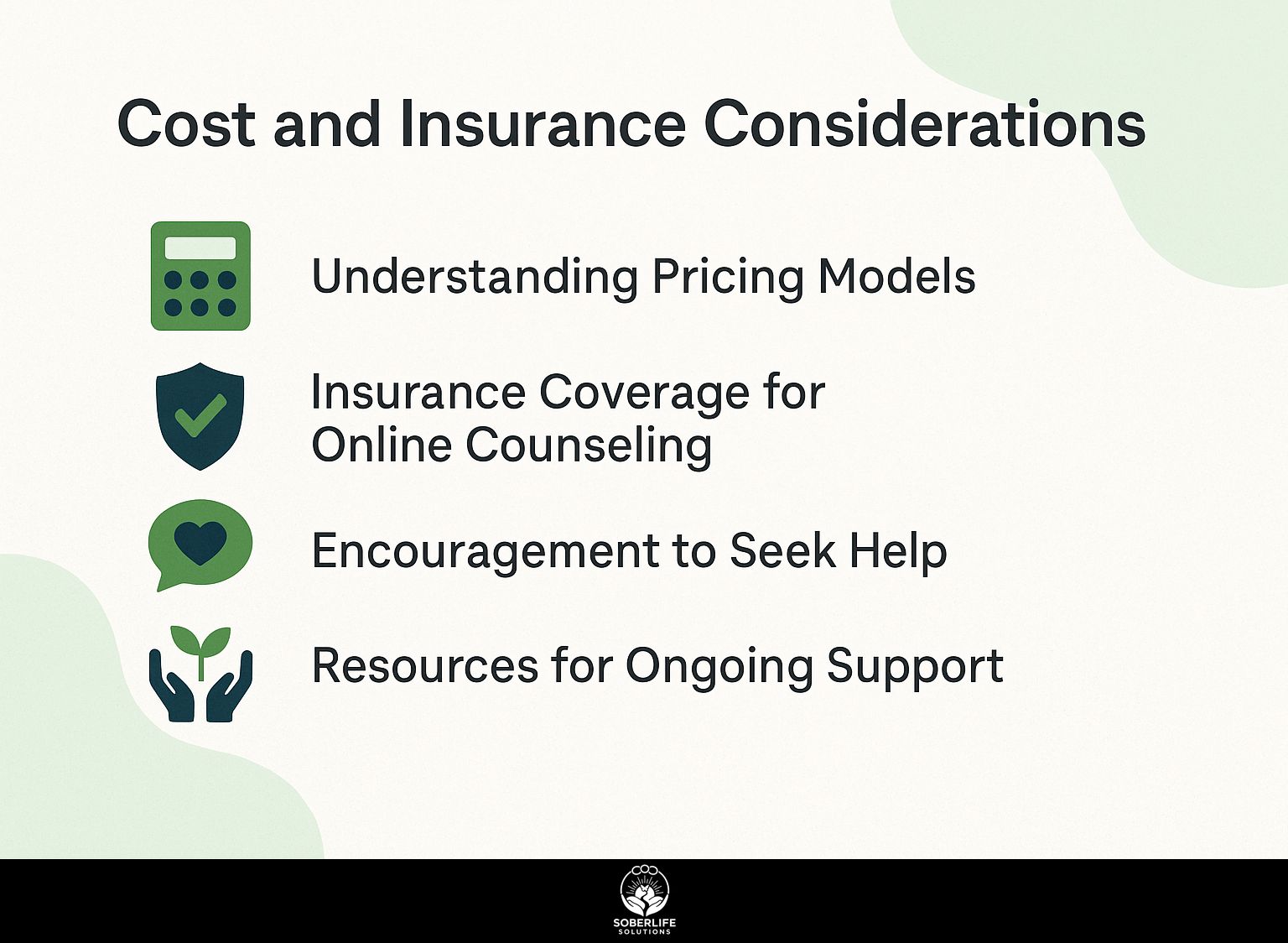
Knowing the cost of online counseling is important. Services usually cost between $40 and $150 per session, based on the provider.
Understanding Pricing Models
Online counseling costs can vary significantly, with models including pay-per-session and monthly subscription services offering different levels of access.
BetterHelp typically charges around $60 to $90 per week, billed monthly, providing unlimited messaging and weekly video sessions.
In contrast, Talkspace offers a pay-per-session option that can range from $65 to $99 for text therapy, while their monthly plans start at $260, including weekly live video sessions. This makes Talkspace suitable for those who may prefer flexible scheduling over structured plans.
Think about what you need-if you need regular help, a subscription could be a good choice. If you only need help now and then, paying per session might work better for you.
Insurance Coverage for Online Counseling
A lot of insurance companies are now paying for online counseling, which makes treatment cheaper for people looking for support.
To maximize your benefits, start by reviewing your insurance policy for specific coverage details related to telehealth services. Check if your plan requires in-network providers, as many insurers limit online therapy to affiliated professionals.
Use tools like Zocdoc to locate therapists who take your insurance. Call your insurance provider directly to confirm co-pay rates and any limits on session numbers. Keeping track of your appointments and claims can help make reimbursements easier.
These steps help you get important mental health support easily.
Encouragement to Seek Help
Keep in mind, asking for support is the starting point toward getting better-many have improved their lives with online counseling services.
Online counseling offers flexible and accessible support. Many individuals start with platforms like BetterHelp or Talkspace, both of which provide licensed therapists who can cater to your specific needs.
For example, BetterHelp lets you pick from many specialists, so you can find someone who personally fits your needs. These services typically offer chat, video, or phone sessions, allowing you to engage in a format that feels comfortable.
You should look into local support groups too; they can offer community help and motivation.
Resources for Ongoing Support
Look into resources such as SMART Recovery and internet-based support groups to stay focused and create a supportive network.
Joining platforms like Smart Recovery, which offers group meetings and online discussions, provides ongoing support.
In addition, consider utilizing the Sober Grid app, a social network for those in recovery, where users share experiences and encouragement.
Another helpful resource is the Reddit community r/stopdrinking, where people share their experiences and advice.
To improve your experience, consider joining local groups like Alcoholics Anonymous for meeting in person and staying responsible.
Frequently Asked Questions
1. How do I access online counseling for alcoholism recovery?
To access online counseling for alcoholism recovery, you can search for reputable online counseling platforms or contact your local addiction treatment center. You can also ask for recommendations from your primary care physician or therapist.
2. Is online counseling for alcoholism recovery effective?
Yes, online counseling for alcoholism recovery works just as well as traditional face-to-face counseling. Studies have shown that online counseling can lead to reduced alcohol use and better long-term recovery outcomes.
3. What are the benefits of online counseling for alcoholism recovery?
Some benefits of online counseling for alcoholism recovery include convenience, accessibility, and privacy. Online counseling allows you to attend sessions from the comfort of your own home and at times that work best for your schedule. It also provides a safe and confidential space for you to discuss your struggles with alcoholism.
4. Do I need any special equipment or technology to access online counseling for alcoholism recovery?
Most online counseling services need you to have a good internet connection and a device like a computer, tablet, or smartphone. Some platforms may also recommend using headphones and a webcam for a better experience.
5. Can I get medication through online counseling to help with alcoholism recovery?
Yes, some online counseling platforms provide medication-based help for recovering from alcohol addiction. However, you should talk to a licensed doctor before beginning any medication treatment.
6. Are there any support groups available through online counseling for alcoholism recovery?
Yes, many online counseling platforms offer virtual support groups for individuals in recovery from alcoholism. These support groups offer a place where you can meet and talk with others facing similar experiences.

